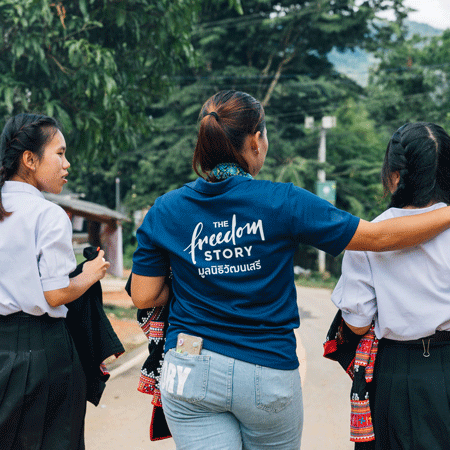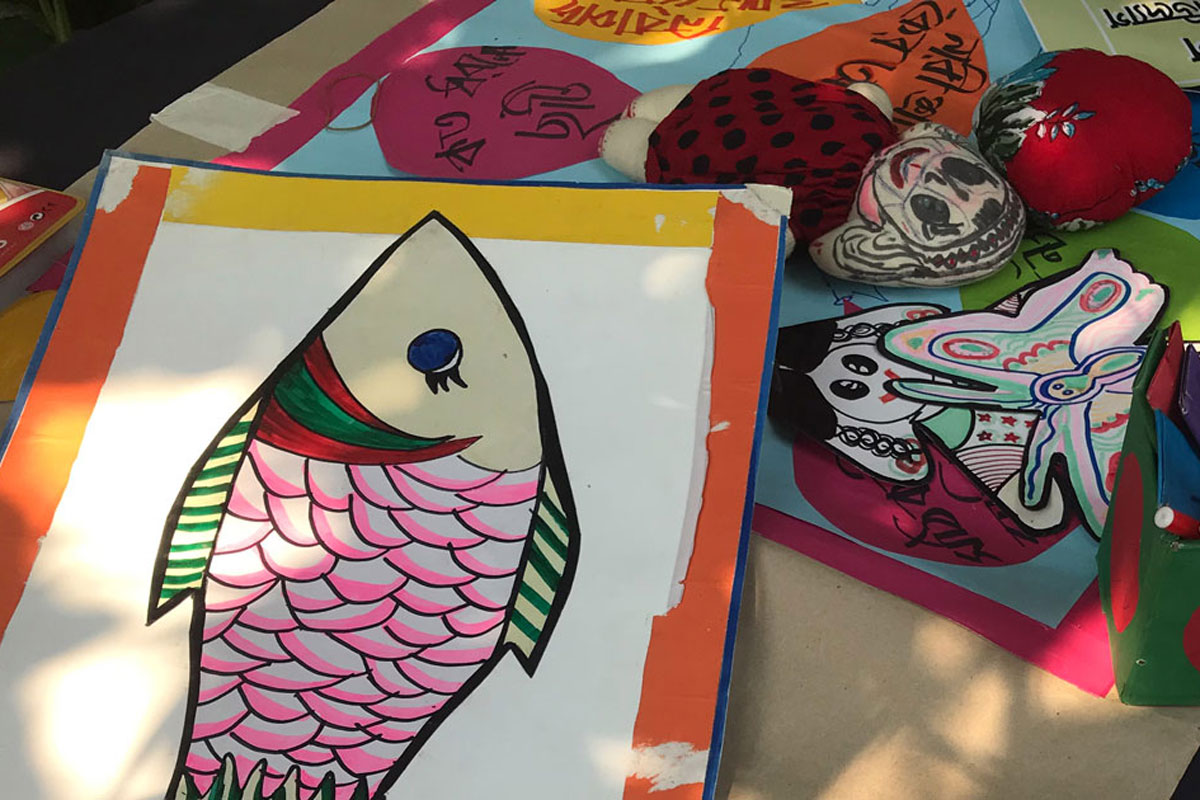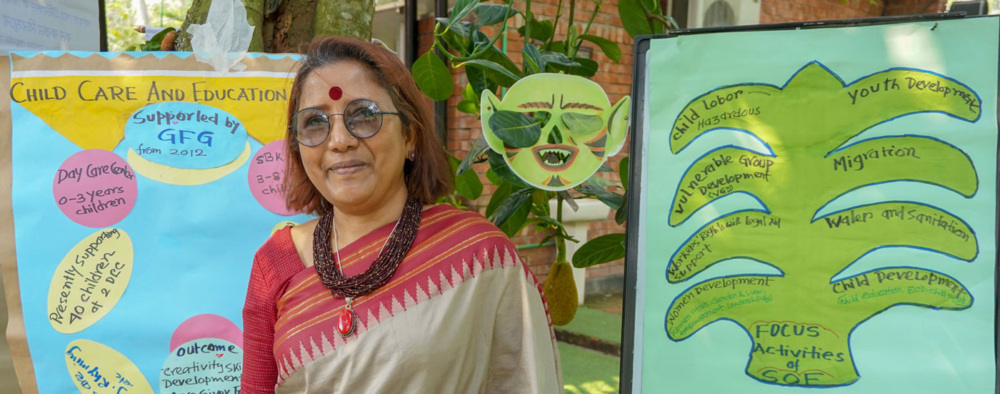
Safety and wellbeing
Safety and wellbeing
This article was originally published by Girls’ Globe.
Human trafficking remains a pressing global issue, with millions of unsuspecting individuals, usually from low-income and less privileged backgrounds, falling prey each year. Although boys and men are trafficked too, girls and women continue to comprise the majority of people trafficked in South Asia.
The 2022 Trafficking in Persons report notes that human trafficking is prevalent in Bangladesh, with the most at-risk groups including individuals affected by early marriage or gender-based violence, young people who are unemployed and have little education, and people who are from marginalized communities or are living in poverty.
The report acknowledges that trafficking is a complex crime that requires multifaceted strategic approaches.
GFC partners in Bangladesh are dedicated to addressing trafficking and exploitation of children and youth in informal settlements in the capital city of Dhaka and in other areas of the country. Dhaka is one of the most densely populated cities in the world, with over 5,000 slum settlements that are home to an estimated 4 million of the poorest urban dwellers.
Using diverse methods, partners are equipping children and families with the knowledge to identify and prevent trafficking in their communities.
Through peer-to-peer learning, documentary film screenings, trainings, and distribution of information and educational materials, GFC partner Shobujer Ovijan Foundation (SOF) empowers young people who live in slum communities to recognize signs of potential trafficking situations and to take action.

The organization has 110 youth leaders in the Kallyanpur Pora Bosti and Sattala slum settlements who engage children and families on child trafficking and exploitation, among other issues.
“We have a leader in each section of the community who is trained to provide information to the community and educate them about how human traffickers operate,” explained Mahmuda Begum, Executive Director of SOF. “That way, we are able to cover every section of the slum settlements and ensure children and their families have access to vital information to respond to the threats of trafficking.”
Mahmuda added that these leaders are also trained on recognizing the signs of trafficking, responding to trafficking threats and incidents, and helping families to report trafficking to the relevant authorities.
“Lack of education and awareness is what makes most people vulnerable,” she said.
SOF runs 45 daycare centers at garment factories, providing an opportunity for children to learn and play and for their low-income mothers to continue working. In addition, the organization also has two cafés that operate as safe spaces for women. At these cafés, women can talk freely about social challenges such as violence and exploitation and participate in trainings on trafficking. The organization also collaborates with survivors of trafficking who share knowledge and insights based on their lived experiences.
“As more and more people receive information and knowledge on this, incidents of human trafficking have significantly reduced,” Mahmuda said.
Another GFC partner, Sohay, works with disadvantaged and impoverished communities in Satkhira, which is located along the Bangladesh-India border and is a popular trafficking route to India.
Sohay raises awareness among adolescent girls and female college students on children’s rights, including the dangers of child marriage and child trafficking. The organization also works with trafficking survivors who share their experiences with adolescents.
“Some of the families are complicit in the sale of their children,” said Abul Moniruzzaman, Sohay’s Director of Programs. “Out of desperation to get out of poverty, parents give away their children or send then across the border to look for ‘better’ opportunities, therefore exposing them to the risk of being trafficked.”
Abul explained that as a result of Sohay’s awareness and education programs, adolescent girls are actively asking questions about information provided by traffickers.
“It is important to continuously share the right kind of information to counter the deceitful information that the perpetrators of trafficking share in communities,” he said.
SOF and Sohay are just two of the organizations that GFC has supported as part of its multifaceted approach to addressing trafficking and exploitation in Bangladesh.
Global Fund for Children, in partnership with WE Trust, supports a growing network of organizations in Bangladesh that are dedicated to addressing the trafficking and exploitation of children and youth in their communities.
Header photo: Mahmuda Begum, Executive Director of Shobujer Ovijan Foundation. © GFC
